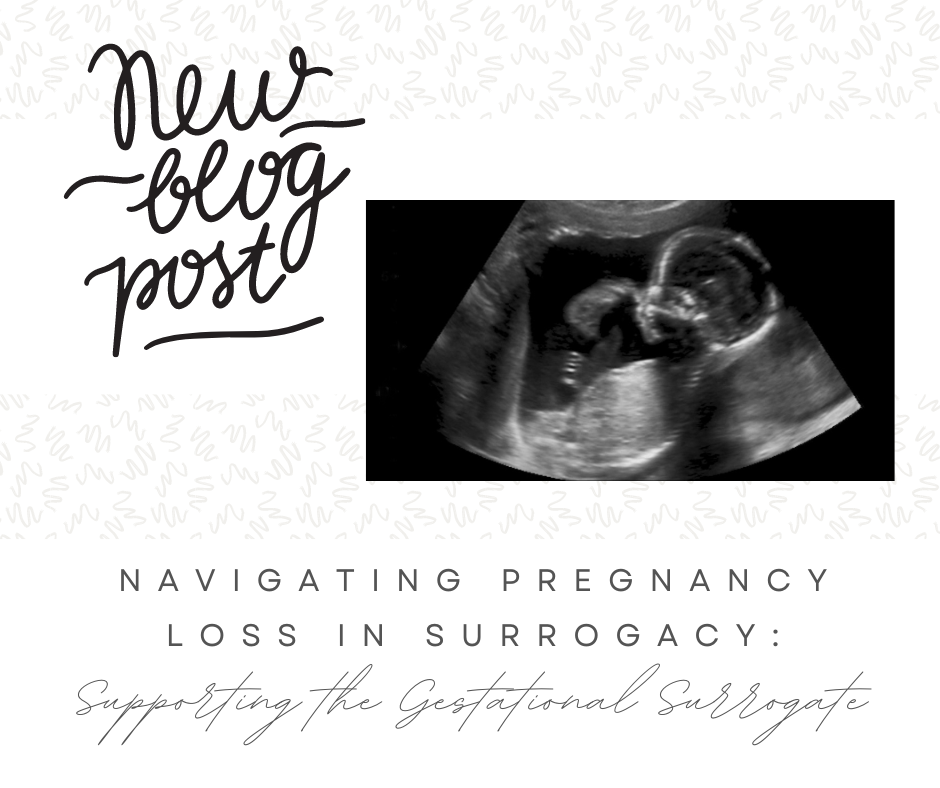*Be sure to listen to our #NormalizeSurrogacy Podcast episode about surrogates and loss here*
There are countless joys and triumphs within the journey of surrogacy, but there are also challenges and hardships that may arise. One of the most profound and difficult experiences can be a pregnancy loss.
Though no one ever wishes for this outcome, it's vital for surrogacy professionals, agencies, and intended parents to understand how best to support a gestational surrogate during such a painful time.
Understanding the Emotional Impact
Pregnancy loss is a deeply personal and emotional experience, and it can be especially complex for a gestational surrogate. In addition to her own feelings of grief and loss, she might also grapple with feelings of guilt or failure, even though the loss is beyond her control. Recognizing this emotional turmoil is the first step in providing meaningful support.
Open Communication
The first line of support is open, sensitive, and non-judgmental communication. Gestational surrogates should be encouraged to express their feelings without fear of reproach or misunderstanding. Ensure them that they're not alone and that their emotions are completely valid. While surrogacy agencies and intended parents may feel unsure about what to say, sometimes just being present and listening can make a huge difference.
Professional Counseling
Grief counseling or therapy can be a lifeline during this time. Having a professional counselor who understands the intricacies of surrogacy and pregnancy loss can be very beneficial. Agencies should consider having such resources readily available, and be ready to provide references to outside specialists.
Flexibility and Understanding
It's important to understand that a gestational surrogate will need time to heal both physically and emotionally. This may affect the timeline of a surrogacy journey and everyone involved must be prepared for this possibility. The focus should be on the surrogate's wellbeing, even if this means postponing discussions about future plans.
Compassionate Support from Intended Parents
Intended parents may be grappling with their own grief, but it's crucial they exhibit understanding and compassion towards the surrogate. Expressing gratitude for her efforts, acknowledging her loss, and reassuring her that she is not to blame can be deeply comforting.
Creating a Supportive Network
Building a supportive community can be incredibly beneficial. This could include connecting the surrogate with others who have experienced pregnancy loss, or organizing support groups. Knowing they are not alone can help surrogates process their feelings and find comfort during a difficult time.
Remembering Self-Care
Remind gestational surrogates about the importance of self-care. Encourage healthy habits such as eating nutritious food, maintaining a sleep routine, and engaging in activities that provide relaxation and comfort.
Compassionate Policies
Surrogacy agencies can develop compassionate policies around pregnancy loss to ensure that surrogates are given the necessary support. This might include financial protection, counseling services, and a policy on timeline adjustments following a miscarriage.
Pregnancy loss within surrogacy is a sensitive topic that requires a delicate and compassionate approach. By showing empathy, offering professional help, and providing a supportive environment, surrogacy agencies, professionals, and intended parents can ensure surrogates are not alone during this difficult time.
*Be sure to listen to our #NormalizeSurrogacy Podcast episode about surrogates and loss here*
Take the Surrogacy Quiz Chat With a Surrogate

